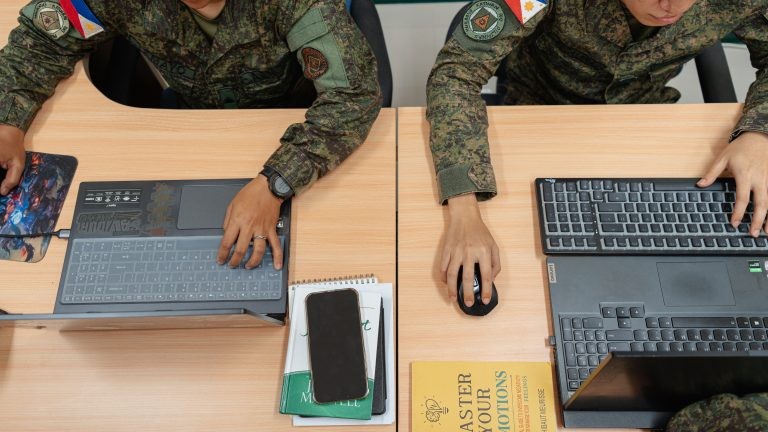
In an unprecedented move to combat rising cyber threats, the Philippine Army is actively recruiting civilian IT professionals to join its cybersecurity unit. The initiative comes as the country faces increasing digital attacks targeting government agencies, academic institutions, and corporations.
Earlier this year, the Army's Cyber Battalion launched a viral recruitment campaign on Facebook, reaching over 2 million views. "We have a greater enemy that wants to devour us. Do we want to let them?" asked Joey Fontiveros, founding commander of the Cyber Battalion, in the social media post.
The Philippines remains particularly susceptible to cyber attacks from China, with recent incidents affecting high-profile targets including the Philippine Coast Guard and President Ferdinand Marcos Jr.'s office. Officials traced these attacks to China, though Chinese authorities deny involvement.
To address these challenges, the Cyber Battalion has expanded beyond its initial military personnel to include about 70 civilian experts in their 20s and 30s. These tech professionals undergo comprehensive training, including military basics like morning drills and weapons handling, alongside their cybersecurity duties.
"The job itself is very taxing, very challenging," notes Fontiveros, who now leads the Armed Forces of the Philippines Cyber Group. "You look at your monitor without even the nerve to blink because you are seeing all the traffic that's there."
The initiative offers an alternative career path for IT graduates, who typically pursue roles in tech companies, financial services, or telecommunications. While the positions may offer lower wages than private sector jobs, they provide job security and the opportunity to serve the nation.
Recent cyber incidents highlight the urgency of strengthening digital defenses. Last year, a ransomware attack on state insurer PhilHealth compromised the personal data of 42 million members. The incident occurred after the government refused to pay a $300,000 ransom demand.
The Philippine military acknowledges its current shortage of skilled cybersecurity personnel. In response, the Armed Forces has established a new Cyber Command to improve coordination among its digital security units. As General Romeo Brawner, chief of the Armed Forces of the Philippines, stated: "We will recruit cyber warriors. This new breed of warriors does not have to be muscle strong."
Success stories are emerging from the program. Ferdinand Lazarte, a 31-year-old IT executive who joined in 2020, has advanced from penetration testing to forensic investigation and instruction. He helped develop the Army's cyber exercise platform and virtual private network, finding greater opportunities for growth than in the private sector.
While the recruitment of civilian tech experts marks a step forward, experts emphasize that a comprehensive approach to cybersecurity remains necessary. The government continues to work on strengthening its digital infrastructure while facing challenges such as the ongoing brain drain of IT professionals leaving the country.
Despite these hurdles, the Philippines has shown improvement in its United Nations Global Cybersecurity Index ranking, reflecting the country's increased focus on digital defense capabilities and international collaboration.